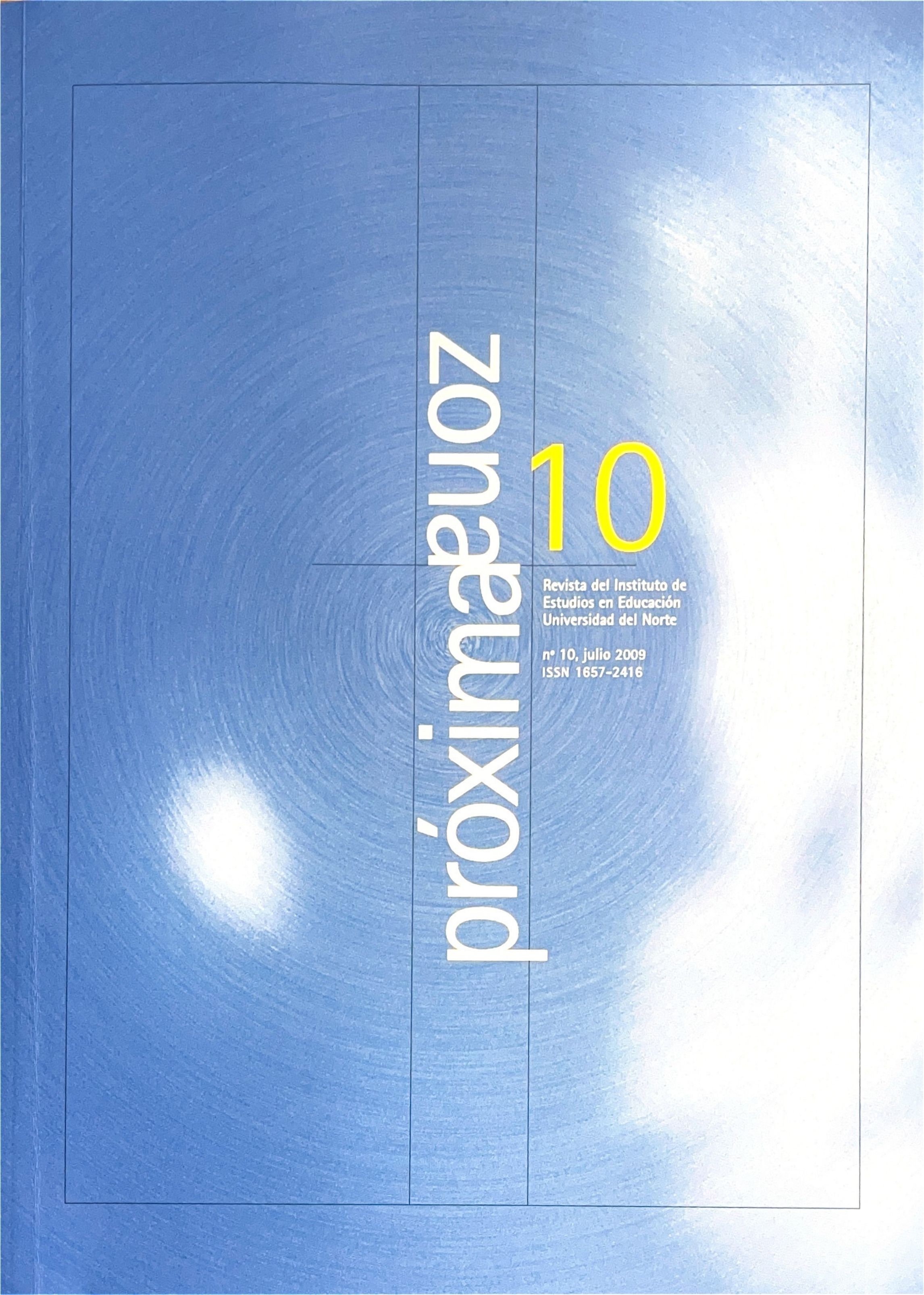Resumen
En este artículo se presenta un avance de algunas consideraciones iniciales tenidas en cuenta para el diseño del nivel de fundamentación de un currículo para la enseñanza del español como lengua extranjera. En él se propone una interpretación formulada a partir de la hipótesis unidad de producción del discurso de Teun van Dijk (2000), que bien puede explicar el papel del lenguaje en el aprendizaje de lenguas extranjeras; también se incluyen los puntos de vista sobre el papel de la norma y la variedad lingüística sostenidos al interior del grupo SICELE1 nodo Caribe, organización en la cual se propone el mencionado currículo.
Citas
BRUNER, J. (1984) Acción, pensamiento y lenguaje. Madrid: Alianza.
EGGINS, S. y MARTIN, J.R. (2003) Géneros y registros del discurso. En El discurso como estructura y proceso. Estudios sobre el discurso I. Una introducción multidisciplinaria. Barcelona: Gedisa.
GARCÍA, A. (1995) El currículo de español como lengua extranjera. Madrid: Edelsa.
HYMES, D. (1996) Acerca de la competencia comunicativa (trad. Juan Gómez). Revista Forma y Función, (9).
INSTITUTO CERVANTES. (2006) Plan curricular del Instituto Cervantes: Niveles de referencia para el español. Madrid: Biblioteca Nueva.
MASSACHUSETTS FOREIGN Languages Curriculum Framework, 1999.
MINISTERIO DE EDUCACIÓN NACIONAL (2006) Estándares básicos de competencias en lenguas extranjeras: inglés. Serie: Guías (22). Bogotá: El Ministerio.
PAPENHEIM, R. (1990) English, its users and its uses. Posgrado de Lingüística de la Universidad Nacional.
RICHARDS, J. (2005) Interchange. Third Edition. Introduction Cambridge: Cambridge University Press.
VAN DIJK, T (2000) Ideología. Una aproximación multidisciplinaria. Barcelona: Gedisa.


